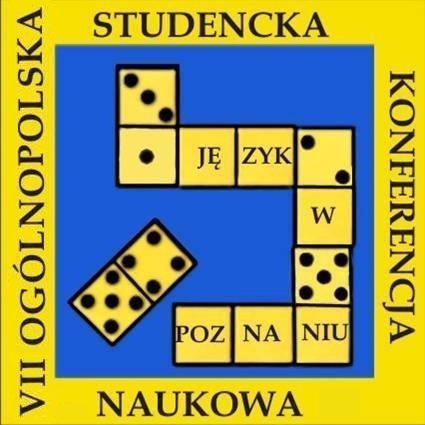VII edycja - abstrakty
Główna |
Organizacja |
Plakat |
Program |
Abstrakty |
Galeria |
Wytyczne |
Ankieta |

Prezentujemy listę referentów oraz tytułów wystąpień wraz ze streszczeniami. Zapraszamy do lektury!
Przypominamy, że język, w którym podany jest tytuł, jest równoznaczny z językiem całego wystąpienia.
Pod każdym streszczeniem umieszczony jest skrócony program, dzięki któremu można dowiedzieć się, jakie inne referaty będą wygłaszane podczas danej sekcji.
Bartłomiej Kruk (Poznań)
Interactional construction of social death in dementia family caregiving
A caregiver occupies a central role in assisting a dementia individual in maintaining their sense of self (Kitwood 1997, Sabat and Harré 1992). However, negative and stigmatizing attitudes to the condition constitute a considerable impediment in providing high-quality patient-centred care (Crisp 1999). When overwhelmed by the progressive disease, caregivers may start to categorize this qualitatively new situation in terms of their relatives' social death (Sweeting and Gilhooly 1997), whereby the recognizable characteristics previously forming the dementia individuals' personhood have been lost as a consequence of their declining cognitive capabilities. This in turn has resonance for how these patients are treated, which can further worsen their condition. Against this backdrop, this research project explores whether and how, in the context of an interview, dementia family caregivers interactionally attribute their relatives with social death caused by the dependants' cognitive impairment.
To this end, the tools of thematic analysis (Braun and Clarke 2006) have been applied to a 13-hour corpus of 10 audio-taped open-ended interviews with 10 American caregivers of dementia relatives collected in February 2015 in New York City.
Considering the interview as a co-constructed interaction (Rapley 2001), the analytic focus falls on the interviewer's questions and the respondents' accounts. The analysis illuminates how, by proffering their lived experience, family caregivers articulate the extent to which their dementia relative has lost or retained recognizable aspects of their previous selves. Thus, particular attention has been paid to the multiple forms of expression whereby the respondents construct perceived loss in terms of minimal change, preserving the continuity of the patients' former selves and/or denying their erosion, to a complete loss of these relatives' commonly taken-for-granted identity facets encoded as transformation into the 'other'.
Gdzie i kiedy:
| W tym samym czasie ... 412, 416 | sala: 504 moderacja: Marta Durczak |
| 10:00-10:15 | Kinga Uszko (US) - Welsh compounds and their description - helpful or misguiding? |
| 10:15-10:30 | Bartłomiej Kruk (UAM) - Interactional construction of social death in dementia family caregiving |
| 10:30-10:45 | Heng Zhang (UW) - A Survey on English Grammar Learning of Non-English Majors at Science and Engineering Universities in Guangxi Zhuang Autonomous Region of China |
| 10:45-11:00 | Aleksandra Sokalska-Bennett (UAM) - Discursive research on miscarriage: the potential for impact |
| 11:00-11:20 | dyskusja |